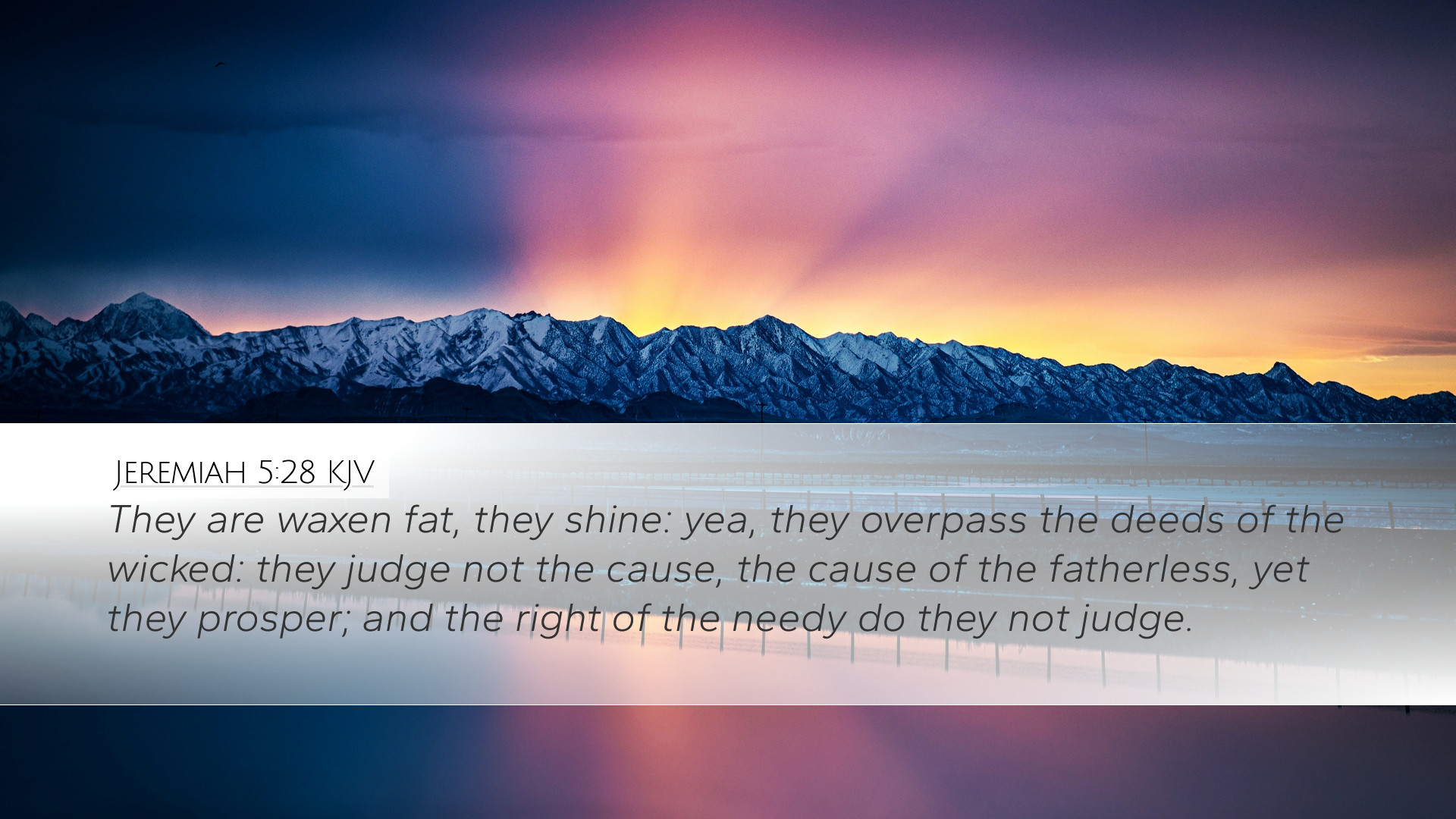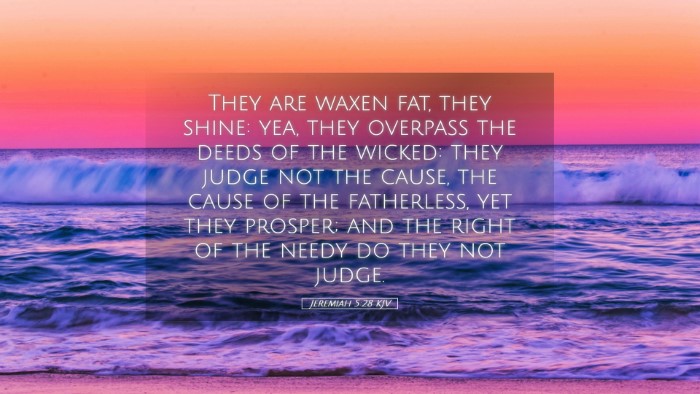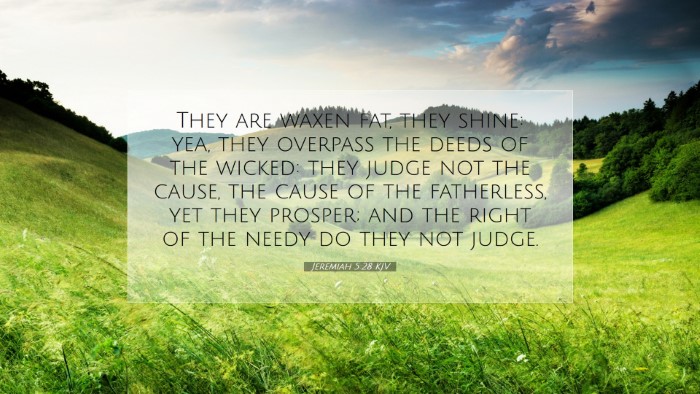Commentary on Jeremiah 5:28
Verse: "They are waxen fat, they shine: yea, they overpass the deeds of the wicked: they judge not the cause, the cause of the fatherless, yet they prosper; and the right of the needy do they not judge."
Contextual Overview
This passage falls within the prophetic ministry of Jeremiah, who speaks during a time of great moral and spiritual decline in Judah. The verse reflects the corruption of the society that has neglected justice, particularly towards the vulnerable, representing a grave departure from the covenantal responsibilities laid out in the Scriptures.
Insights from Commentaries
-
Matthew Henry’s Commentary
Matthew Henry emphasizes the moral decay present in the society of Judah. He notes that the people have become “waxen fat” as a metaphor for indulgence and excess. This signifies a state of spiritual lethargy and a departure from righteous living. The lack of concern for the welfare of the fatherless and the needy illustrates how far they have strayed from God's heart for justice. The prophet condemns them for their hypocrisy—prospering while ignoring the plight of the most vulnerable among them.
-
Albert Barnes’ Notes
Albert Barnes points out that the verse serves to highlight social injustice. He states that the lack of judgment on behalf of the fatherless reflects a broader societal failure to uphold divine standards of righteousness. The term “overpass the deeds of the wicked” indicates a surpassing of even the worst offenders in moral failure. Barnes stresses that this indictment is not merely about individual actions but represents a collective failure of the society to respond appropriately to the demands of justice and righteousness.
-
Adam Clarke’s Commentary
Adam Clarke offers a perspective on the societal consequences of moral decay. He notes that “they judge not the cause” signifies a deliberate neglect that stems from pride and greed among the leaders and powerful. Clarke relates the passage to the broader theme in prophetic literature regarding social justice and God’s concern for the oppressed. The “prospering” of those who neglect divine justice serves as a warning—temporary success in worldly terms cannot justify moral failures in the sight of God.
Theological Implications
Jeremiah 5:28 raises critical theological themes regarding justice, accountability, and divine observation of human actions. The implications extend beyond historical context, calling contemporary readers to reflect on how societal systems uphold or neglect the rights of the vulnerable.
Justice and Righteousness
The core of the passage asserts that divine justice is integrated into the fabric of community and should reflect God’s character. The refusal to advocate for the marginalized indicates a deeper spiritual malaise. In essence, this passage challenges the church to consider its role in advocating for systemic justice and caring for the needy as essential components of the faith.
Moral Responsibility
Both the historical and contemporary interpretations of this scripture underscore a collective moral responsibility. As individuals within a community, believers are called to pursue justice actively and not merely to abstain from wrongdoing. There is a call to introspection, especially for leaders in the church and society, to ensure they do not become complacent or complicit in systemic injustices.
Application for Pastors and Theologians
This passage provides fertile ground for preaching and teaching on social justice. Pastors are encouraged to address injustices within their congregations and communities, urging members to live out their faith by caring for the less fortunate. The lessons from Jeremiah 5:28 can serve as a sobering reminder of the church's duty to reflect God's justice in a world marred by inequality.
Reflection and Action
-
Education: Pastors should educate their congregations about social justice issues, providing biblical foundations for why these matters are critical to Christian living.
-
Advocacy: Encourage active participation in community service and advocacy for social reforms that benefit the poor, weak, and oppressed.
-
Prayer: Foster a culture of prayer that encompasses not only personal needs but also the systemic injustices present in the community and the world.
-
Dialogue: Create spaces for discussing the intersections of faith and justice, helping congregants navigate their responsibilities as both believers and community members.
-
Action: Challenge members to demonstrate their faith through tangible acts of kindness and justice in their neighborhoods and beyond.
Conclusion
Jeremiah 5:28 serves as a powerful admonition against complacency and indifference to justice. It is a clarion call for individuals and the community of faith to engage directly with the needs of the marginalized, ensuring that their lives and practices reflect God’s commitment to justice. The insights gathered from historic commentaries underscore the timeless relevance of this verse and the imperative for contemporary believers to embody the justice of God in action.


